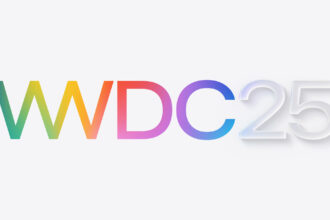Chinese regulatory authorities introduced a comprehensive set of rules on Friday aimed at curbing spending and rewards that incentivize video games, delivering a big blow to the world’s largest gaming market.
The newly announced regulations, designed to impose spending limits on online games, triggered panic among investors, resulting in a combined loss of nearly $80 billion in market value for China’s two leading gaming companies. Investors were keen to assess the potential impact on earnings and anticipate the possibility of additional restrictions in the future.
Under the new rules, online games are prohibited from offering rewards to players for daily logins, initial purchases, or consecutive spending, all of which are common incentive mechanisms. This regulatory move caused shares in Tencent Holdings, the world’s largest gaming company, to plummet by up to 16%, while its closest competitor, NetEase, saw a 25% drop after the National Press and Publication Administrations published the draft rules.
Tech investor Prosus, which owns a 26% stake in Tencent, also experienced a 14.2% decline in early trade on Friday. The broader impact of the regulations on policy risk rather than the regulations themselves raised concerns among industry analysts.
Steven Leung, Executive Director of Institutional Sales at UOB Kay Hian in Hong Kong, emphasized the high policy risk, stating, “It’s not necessarily the regulation itself – it’s the policy risk that’s too high. People had thought this kind of risk should have been over and had started to look at fundamentals again. It hurts confidence a lot.”
Tencent Games’ Vice President, Vigo Zhang, stated that Tencent would not need to fundamentally change its business model or operations, emphasizing the company’s strict adherence to regulatory requirements. Zhang highlighted that minors had been spending historically low levels of money and time on Tencent’s games since 2021 when minor protection became a focus for Beijing. NetEase declined to comment on the matter.
Over the years, Beijing has increasingly tightened regulations on video games, setting playtime limits for under 18s in 2021 and suspending approvals for new video games for eight months. The new rules unveiled on Friday are the most explicit yet, prohibiting reward features and requiring games to set limits on in-game spending.
Ivan Su, an analyst at Morningstar, noted that the removal of these incentives could reduce daily active users and in-app revenue, potentially forcing publishers to overhaul their game design and monetization strategies.
Apart from the restrictions on in-game spending, the regulations ban games from offering probability-based lucky draw features to minors and prohibit the speculation and auction of virtual gaming items. However, a positive aspect for the industry is the proposal requiring regulators to process game approvals within 60 days.
Simultaneously, Chinese regulators announced licenses for 40 new imported games for domestic releases, signaling Beijing’s willingness to allow more games in the country despite the draft rules on game spending. The rules also underscore Beijing’s concerns over user data, mandating game publishers to store their servers within China.
The administration is inviting public comment on the rules until January 22, 2024. As a result of Beijing’s gaming crackdown in 2021, 2022 marked the most challenging year on record for the Chinese gaming industry, with total revenue shrinking for the first time. Despite this, the Chinese video game market returned to growth in 2023, with domestic revenue rising 13% to 303 billion yuan ($42.6 billion), according to the China Game Industry Annual Conference.
The impact of the stringent draft rules extended beyond China, casting a shadow on gaming stocks globally. U.S. gaming stocks such as Roblox, Electronic Arts, and Unity Software experienced declines between 1.7% and 3.1%, while in Europe, French video game developer Ubisoft saw a decline of over 3%.














